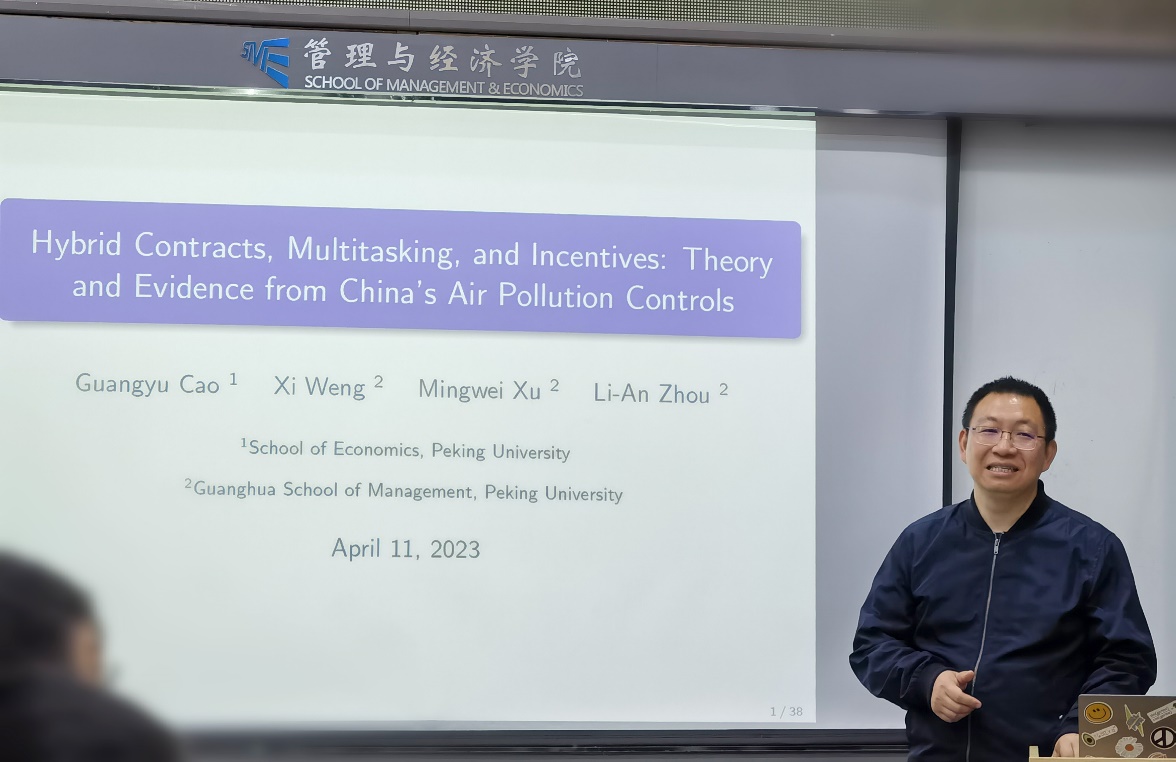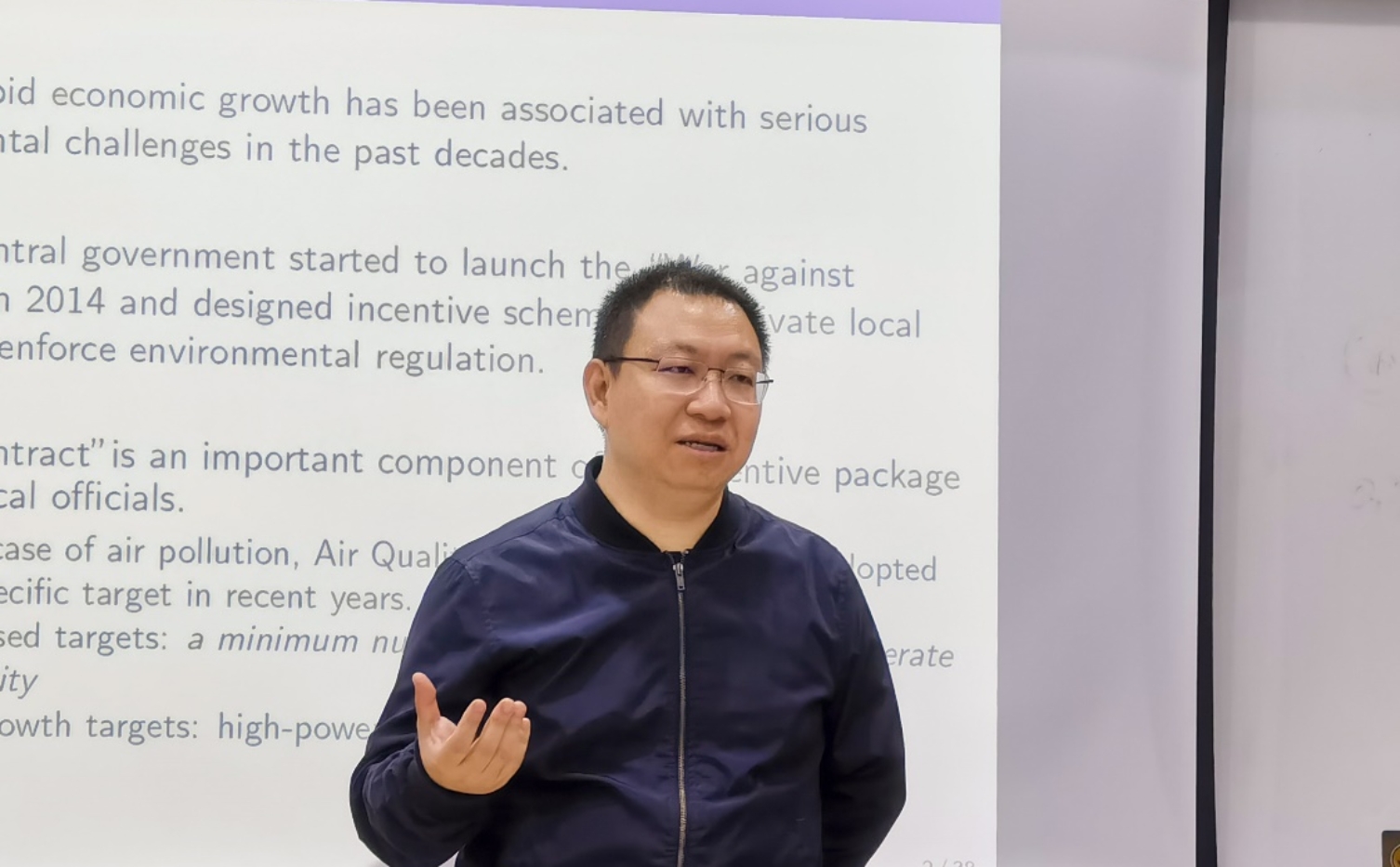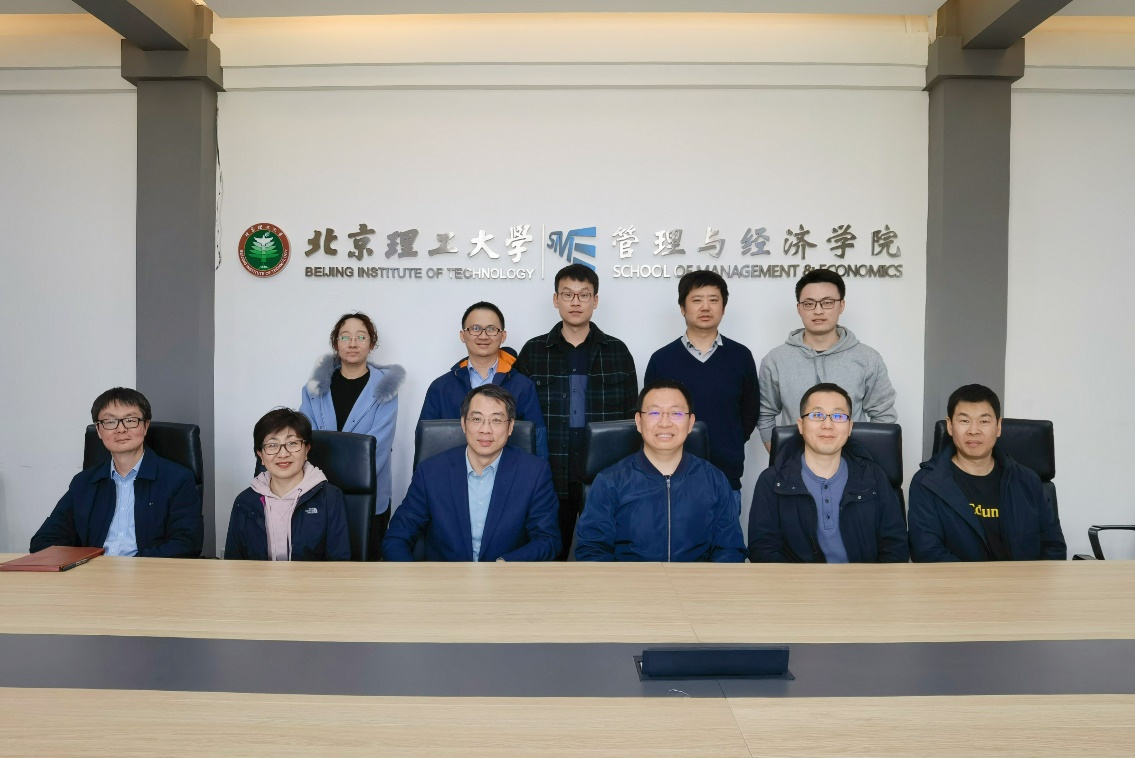At the invitation of the School of Management and Economics, Professor Weng Xi of Guanghua School of Management delivered an academic report entitled Hybrid Contracts, Multitasking, and Incentives: Theory and Evolution from China's Air Pollution Controls at 2 p.m. on April 11, 2023 in Conference Room 317 of the main building. The lecture was presided over by Professor Yan Zhijun, and many teachers and students from the college attended the lecture.
At the beginning of the report, Professor Weng pointed out that with the rapid development of China's economy, China is facing severe environmental pollution problems. The central government has also encouraged local officials to carry out environmental pollution control through various policies. Hybrid Contract is currently the most common form of incentives for local officials against air pollution, which includes the goals to be achieved by the Air quality index (AQI) and the high-intensity economic incentives to achieve the GDP growth goal.Professor Weng stated that local officials can divide the achievement of air quality goals into two categories: Doomed Failure and Early Fulfillment, and conducted an empirical study using Breakpoint Regression Model (RDD) for these two results. Professor Weng's research shows that when air quality improvement is destined to fail, local officials will work harder to improve air quality because they have not achieved their goals. As a result, local enterprises' sulfur dioxide emissions will be reduced, and subsequent air quality will be improved. When air quality improvement is successful ahead of schedule, local officials will relax their control of air quality because they have already met the standards, leading to an increase in sulfur dioxide emissions from local enterprises and a subsequent decrease in air quality. In addition, Professor Weng also pointed out that this phenomenon is usually formed by external officials who parachute in. Local trained officials (Insiders) will generate internal value due to their association with the local area, and will continue to improve air quality in both cases.
Finally, Professor Weng, based on the results of empirical research, established a series of Game theory models for officials' decisions on air pollution control, revealed the double-edged effect of local officials to achieve their goals, and emphasized the impact of internal incentives, policy incentives, economic growth pressures and central supervision on local officials to achieve environmental governance goals.
After the report, the attending teachers and students had an active discussion with Professor Weng, which received a lot of inspiration. The report received a warm response and received unanimous praise from teachers and students.
Introduction to the reporter:
Weng Xi is currently a professor employed by the Department of Applied Economics of Guanghua School of Management of Guanghua School of Management, a young Changjiang scholar of the Ministry of Education, a winner of the National Natural Science Foundation for Distinguished Young Scholars, a vice chairman of the Chinese Society for Information Economics, and a member of the Academic Committee of the Department of Economics and Management of Peking University. His main research fields are Game theory, information economics and organizational economics. He graduated from Peking University with a bachelor's degree and a master's degree, and graduated from the University of Pennsylvania with a doctor's degree. His research results have been published in top academic journals abroad, such as Journal of Finance, Management Science, Economic Journal, American Economic Journal: Microeconomics, Journal of Economic History, Journal of Economic Theory, International Economic Review, and Rand Journal of Economics. He has presided over or participated in more than ten projects, including the National Natural Science Foundation of China, the Beijing Social Science Foundation, the National Development and Reform Commission, the State Administration for Market Regulation, and the China Association for Science and Technology. Dr. Weng has won the following awards in scientific research: 2022 Zhang Peigang Development economics Young Scholar Award, 2020 Eighth University Science Research Excellence Award (Humanities and Social Sciences) Youth Achievement Award, 2019 China Information Economics Excellence Achievement Award, 2019 Li Yining Scientific Research Award, 2017 China Information Economics Youth Innovation Award, 2017 The 13th Peking University Humanities and Social Sciences Research Excellence Award, 2016 China Information Economics Wujiapei Award.







